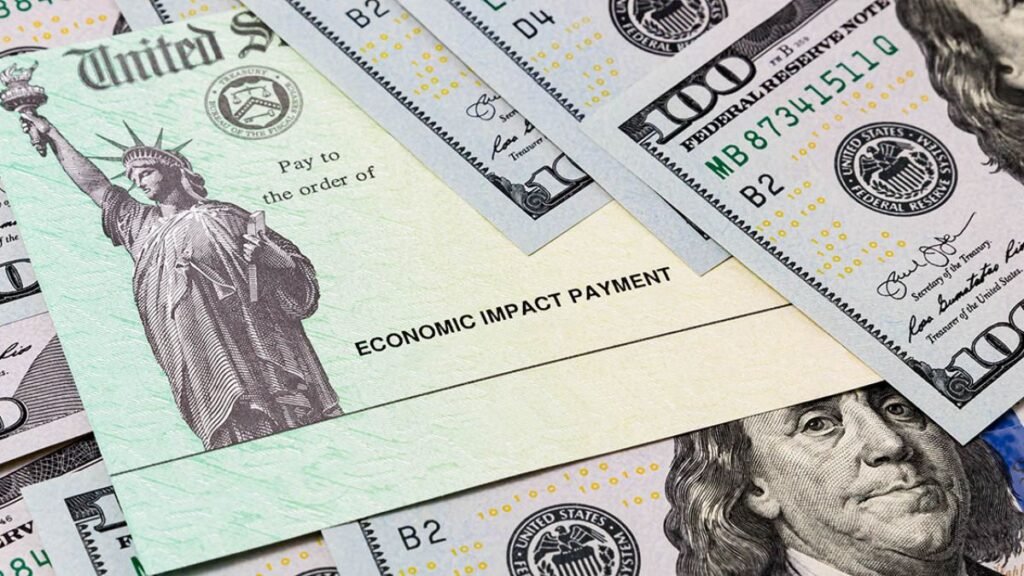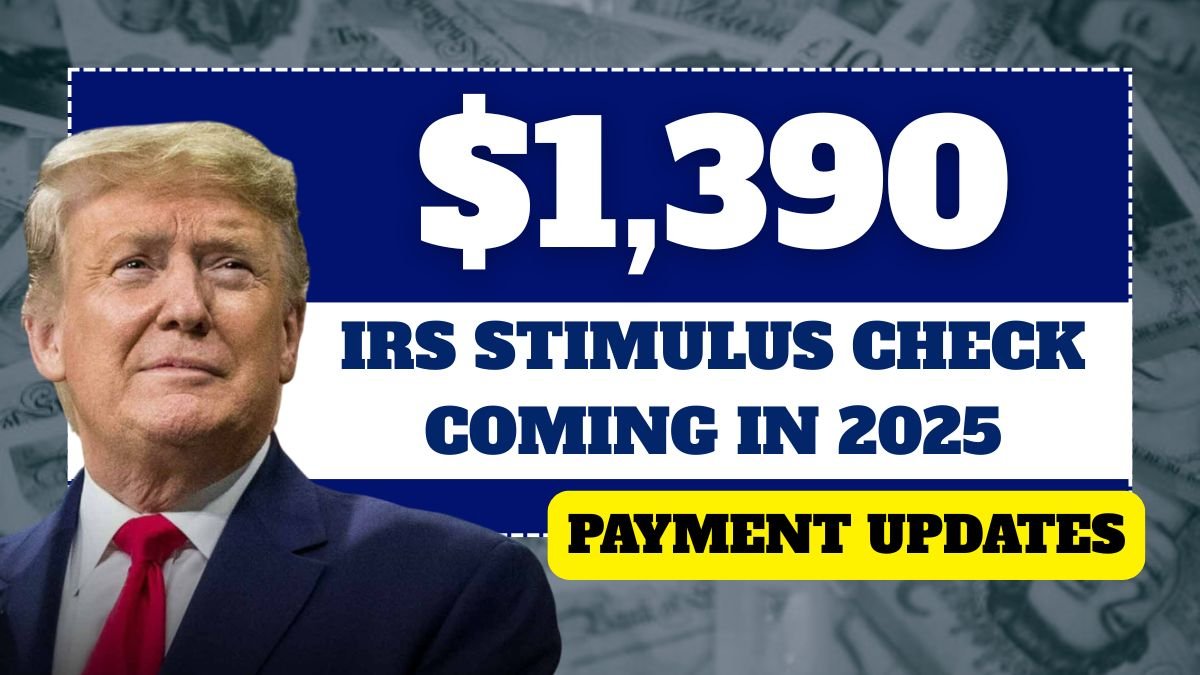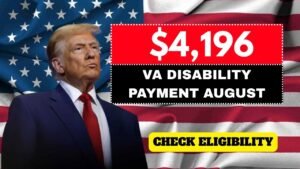The US economy has faced many challenges over the past few years—rapid inflation, continuous rise in house rents, surge in fuel and food prices, and lack of stability in the income of many families. In such an environment, schemes that provide direct financial assistance from the government have always been a source of relief for the people. In this context, the Internal Revenue Service (IRS) has planned to issue a new stimulus check of $1,390 in 2025, which will be given to eligible citizens in the coming months.
This scheme is being introduced as part of a larger economic relief package, which is especially for those who have limited income and who are struggling to meet daily expenses. The clear objective of the government is that with this amount, people can reduce the pressure of inflation to some extent and they can experience financial stability.
Background of Stimulus Check: Why is it so important?
Stimulus checks are not a new concept in America. Over the past decade, especially during the COVID-19 pandemic, such payments were made several times to provide direct financial assistance to citizens in difficult times. When the economy slowly opened up after the pandemic, inflation put even more pressure on people’s earnings.
Currently, there are many families whose income may come from work, but expenses are increasing so fast that they are unable to save. The increase in rent every year, rising electricity, water and gas bills, children’s education expenses, and the cost of health services—all these reasons are making middle- and low-income families financially weak. In this context, this check of $1,390 can prove to be helpful for many families to handle the monthly budget.
The real purpose of this scheme and its long-term benefits
The main purpose of stimulus payments is not just to provide immediate relief but to make people feel a little stability and security. When a person or family has enough resources for their essential expenses, they also feel strong mentally and emotionally.
Main benefits:
- Immediate relief: This amount will help meet basic needs, reducing the need for families to take loans.
- Tax-free benefits: This payment is completely tax-free, meaning no additional tax will have to be paid on it and it will not be included in the income tax return.
- No impact on government benefits: There will be no reduction in benefits like Medicaid, SNAP or housing assistance.
- Improvement in local economy: When people have extra money, they make purchases, which also benefits the local market and small businesses.
Eligibility Criteria—Who will benefit?
The government has set certain eligibility conditions for this check. Their purpose is to ensure that the amount goes only to those whose financial condition is really weak.
- Single Taxpayer: Annual income up to $75,000
- Married couples (filing taxes jointly): Annual income up to $150,000
- Head of Household: Annual income up to $112,500
In addition, to get benefits:
- You must be a US citizen and have a valid Social Security number.
- You must have recently filed a 2023 or 2024 tax return.
- You must not be listed as a dependent on someone else’s tax return.
If you have received a stimulus check before and there has been no major change in your income situation, then you are likely to be eligible this time too.
Payment Timeline and Process

The official payment date has not been announced yet, but it is estimated that this payment will start in mid-summer 2025.
The payment process will be as follows:
- Direct Deposit: Those whose bank details are updated with the IRS will get the payment first.
- Paper Check: For those who do not have bank details, a check will be sent to their address, which may take a little longer.
- EIP Debit Card: Some people will also be sent the amount in the form of a prepaid debit card.
Use of payment: How can families plan better?
This amount may be a one-time aid, but with proper planning, it can be used to make the most of it.
- Essential Expenses: Use it first for essential things like rent, electricity, water, medicines and groceries.
- Repaying Debt: If you have a high-interest rate loan, then use the money to repay it.
- Savings or Emergency Fund: Save a part of the amount so that it can help in any uncertain situation in the future.
How to avoid fraud and cheating?
As soon as any financial assistance scheme is announced, fraudsters become active. They try to lure people through fake emails, text messages, or fake websites and steal their personal information.
Caution Tips:
- The IRS will never ask for your bank or identity information through email, text, or social media messages.
- Trust only official websites like irs.gov or treasury.gov.
- Do not click on any suspicious calls or links.
Conclusion
This IRS stimulus check of $1,390 will not only provide financial support to millions of American families, but it will also bring mental and emotional relief to them. At a time when inflation and expenses are constantly rising, this amount will help people meet their basic needs.
If you are eligible, start now. Keep your bank details and tax records updated and use your payments wisely when they arrive. Also, be cautious of fraudsters so that your rights are protected.
FAQs
Q. Who is eligible for the $1,390 IRS stimulus check?
A. Single filers earning up to $75,000, married couples earning up to $150,000, and heads of households earning up to $112,500 are eligible.
Q. Is the $1,390 stimulus check taxable?
A. No, the payment is tax-free and will not be included in next year’s income tax return.
Q. When will the payment be sent?
A. Payments are expected to start in mid-summer 2025, with direct deposits arriving first.
Q. How will I receive the stimulus check?
A. Through direct deposit, paper check, or an EIP debit card, depending on your banking information with the IRS.
Q. Will receiving this check affect my government benefits?
A. No, it will not reduce or affect benefits like Medicaid, SNAP, or housing assistance.


